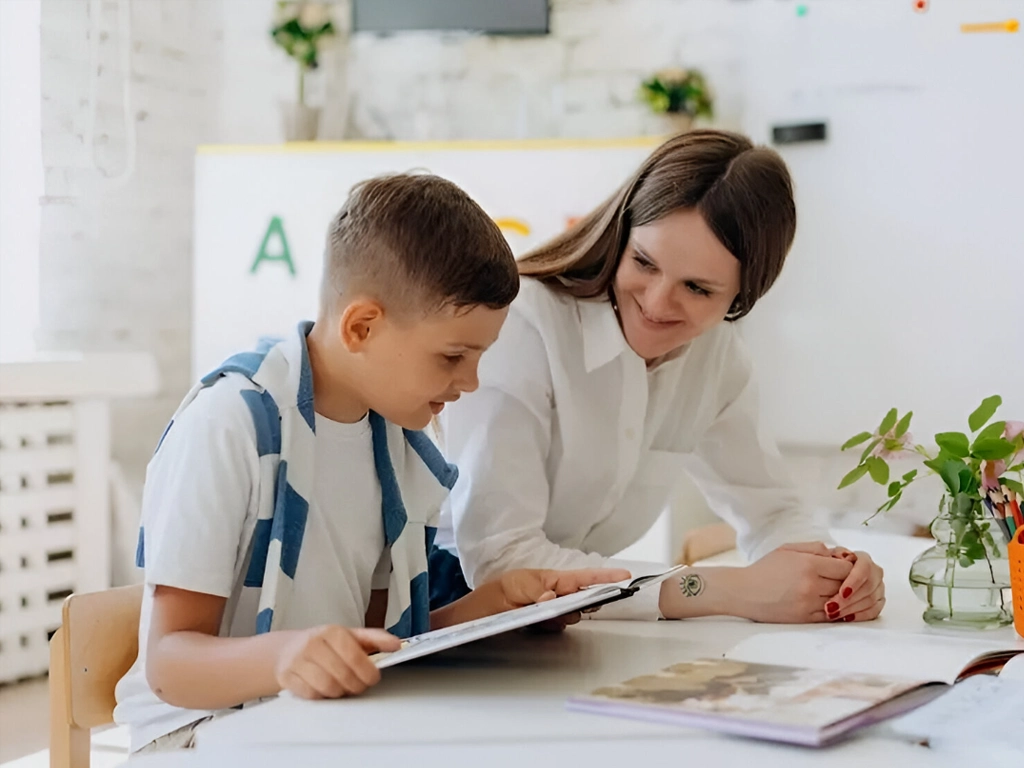People with autism can find it hard to understand relationships and be members of the community. Autism Spectrum Disorder (ASD) encompasses a range of neurodevelopmental conditions characterized by challenges with social skills, repetitive behaviors, speech, nonverbal communication, and difficulty in maintaining eye contact.
The autism characteristics of a person can affect how they interact with neurotypical people, colleagues, family and friends, and romantic partners. Of course, adults with autism can enjoy relationships and find meaning in them. However, people with autism spectrum disorders have to assess how to function in intimate relationships and how to cope with certain relationship features that challenge the way they perceive the world.
Understanding Autism in the Context of Relationships
Even individuals with high-functioning autism experience the world differently. Sensory processing and sensory issues in general, sensory difficulties with traditional communication, and unique social interactions are common and affect relationships and intimacy with friends and family.
This doesn’t diminish the desire or ability of autistic adults to form meaningful relationships — but people should acknowledge these signs and symptoms. This will help them work toward understanding and respect in any relationship involving an adult with autism.
The Role of Applied Behavior Analysis (ABA) in Relationship Building
Applied Behavior Analysis (ABA), a frequently utilized therapeutic approach for autism, can contribute significantly to the development of various relationship skills.
ABA therapy focuses on improving specific behaviors, such as social skills, physical skills, communication, reading, dating and academics, as well as fine motor dexterity, special interests, health and wellness, hygiene, grooming, domestic capabilities, and job competence.
By doing deep research and working on these areas, ABA therapy can help individuals with autism work with the complexities and nuances of relationships more effectively.
Tips for Navigating Relationships with Autism
Communication is key
People with autism must learn to express needs, emotions, facial expressions, and thoughts.
ABA therapy can provide tools and strategies to improve communication skills. Remember, communication isn’t just verbal; non-verbal cues are just as important, if not even more so. A person’s body language says a lot, but these are clues that sometimes people with autism can’t read.
For example, the fact that a person is crying might not immediately tell them that this person is sad and needs comforting. Adults with Autism syndrome might need clear descriptions of a person’s feelings to fully grasp what’s happening and respond accordingly. This difficulty in deciphering non-verbal cues, however, doesn’t mean a lack of empathy or concern in individuals with autism — and people should realize that.
Understanding and setting boundaries
It may be difficult but individuals with autism must understand their boundaries and those of others. ABA therapy can assist in recognizing and respecting these limits.
Sometimes a person with Asperger syndrome might stand too close to another one, or talk about something and share information and experiences that could be too private to share in public.
Autistic people need to learn that they have their boundaries but that other people have their own boundaries which must be respected.
Developing social skills
Social skills often elude people with autism causing anxiety. What sort of gift do you buy a friend who is having a birthday party? What do you talk about during coffee time at the office? How do you tell the difference between a chit-chat with a friend and a private conversation with your manager?
ABA therapy can offer practice and advice on the problems of social interactions that often elude autistic people. They can learn to handle social interactions in a way that matches the setting and the people.
Embrace your uniqueness
Every individual with autism is unique. Autistic people should be given the space to embrace and understand their own autism. Once they have understood it for themselves, they can explain it to others in a relationship.
If, for example, they don’t like loud noises, they will be able to convey that and find spaces and areas that match their needs. They might like to communicate through email rather than phone because that’s what makes them comfortable: through understanding who they are, they will have the self-confidence and self-knowledge to let other people know.
Seeking understanding partners
Friends, family members, and romantic partners need to educate themselves about autism. Mutual understanding fosters stronger, more empathetic relationships. This, in return, fulfills an autistic person and allows them to display their feelings in an open and fair way.
Patience and perseverance
Building and maintaining relationships takes time and effort, especially for individuals with autism. All partners must show patience and perseverance. In a sense, a person with autism speaks a language that has a few idiomatic particularities, and people around them must learn to recognize this dialect.
A Vast Array of Different Relationships
The way an autistic person reacts to different types of relationships can vary greatly, as autism spectrum disorder (ASD) manifests differently in each individual.
Even so, there are some common challenges and characteristics that many autistic people can experience in their relationships. Relationships are not equal, which means that an autistic person must learn to adjust their behavior according to the type, level, and depth of the relationship.
Romantic relationships
Autistic individuals may find romantic relationships challenging due to difficulties with social cues, communication, and emotional expression.
In romantic bonds, an autistic partner may feel like deciphering a complex language, where understanding emotional cues can lead to challenges. They may struggle with understanding or interpreting their partner’s emotions or expressing their own feelings in conventional ways.
Even so, many autistic people form deep, meaningful romantic connections, often preferring straightforward and honest communication.
In the intricate dance of autism and relationships, each connection unfolds as a distinctive journey. An autistic person feels the nuances deeply, where the fabric of every relationship is unique and woven with individual threads.
There is a learning curve for a couple where one party is autistic because communication can be choppy. An autistic partner can be very honest, reliable, and loyal. Such qualities can be the foundation of a wonderfully meaningful romantic relationship.
Friendly relationships
Friendship can be rewarding yet elaborate for autistic individuals.
They may have specific interests and prefer to connect solely with others who share these interests. Challenges may thus arise in group social settings or in understanding social nuances such as parties, get-togethers, excursions, and social gatherings. For example, changes to routines can upset autistic people, as they need time to process the upcoming change and place it in their mental map.
Having said that, many autistic individuals value close, loyal friendships where their differences are understood and respected.
Professional relationships
In a professional setting, autistic individuals may excel due to their focus, attention to detail, and expertise in specific areas. However, they may find social aspects of the workplace, like small talk, grapevine communication, or office politics, strenuous. Clear, direct communication and a structured environment are often beneficial.
Familial relationships
Family relationships can be a source of significant support for autistic individuals. Strong family bonds can be formed based on mutual understanding and respect for each other’s differences.
Family members may, however, need to understand and adapt to the autistic individual’s communication styles, sensory issues, and need for routine. Things that are expected and given may not seem so straightforward to an autistic person. For example, a Thanksgiving dinner could be upsetting and overwhelming to an autistic person if it involves too many people or a venue that’s too noisy and vibrant.
Acquaintanceships
Interactions with acquaintances may be difficult for some autistic individuals due to the social and communicative nuances involved in such relationships. They might prefer structured or purpose-driven interactions over casual, spontaneous conversations.
It can be hard for an autistic person to understand the lack of depth of the relationship and what is socially acceptable to discuss in such circumstances.
Mentor-mentee relationships
A mentor-mentee relationship can be particularly helpful to autistic individuals.
A mentor who understands and accommodates their learning and communication style can significantly aid their personal and professional development. It’s a helping hand in understanding the world and how people function.
Therapeutic relationships
Therapy can be highly supportive for autistic individuals.
A therapist who specializes in or is familiar with autism can notice mental health issues and help autistic women and men navigate their feelings, relationships, and the challenges they face in daily life.
Consistency and a clear understanding of goals are often important in these relationships. ABA therapy is an important component that can help people with autism to access better the outside world.
Achieving Meaningful Relationships for People with Autism
Understanding relationships for people with autism can be challenging. With the right tools and strategies, they can build and maintain fulfilling relationships.
ABA therapy can be a valuable resource in autism and developmental disorders as it offers tailored strategies to enhance communication and social skills. Remember, every person with autism is unique, and so too will be their approach to relationships. It takes patience, understanding, and support for individuals with autism to form deep and rewarding connections.
See additional information in sources like the National Autistic Society and the American Psychiatric Association’s Diagnostic and Statistical Manual of Mental Disorders (DSM). Know about autism in adults, workplace dynamics with autism at work, and access additional insights from reputable medical sources like Medical News Today.
If you are interested in learning more about ABA therapy, Autism ABA therapy. is dedicated to providing the best ABA therapy for autism disorders in Florida and Texas. We are licensed by commercial insurance throughout the state of Florida and provide ABA therapy for autism in Fort Myers, Cape Coral, Lehigh Acres, Naples, and Miami in Florida.




